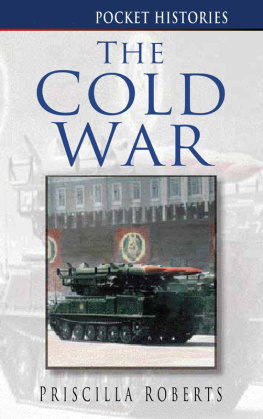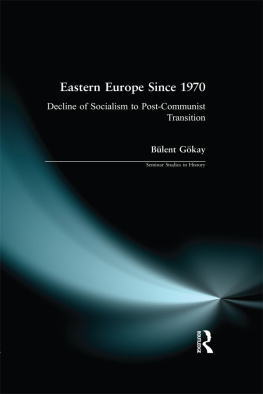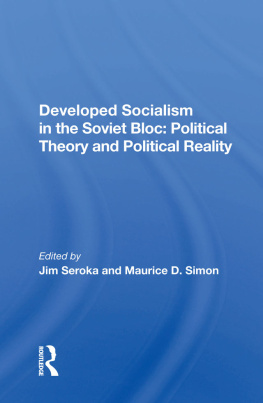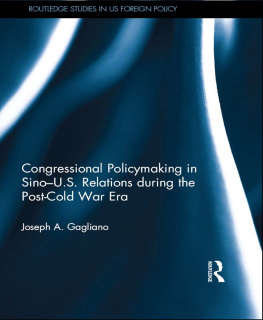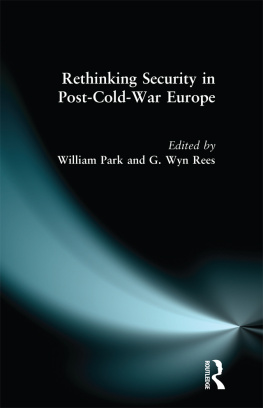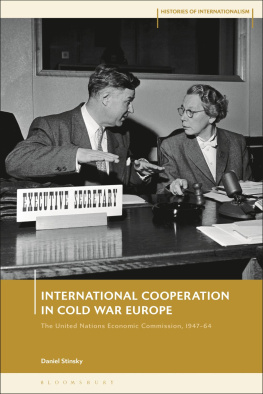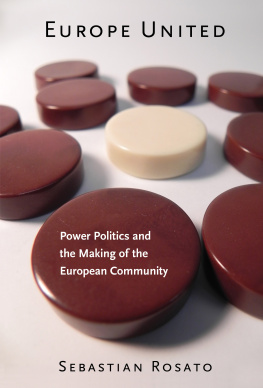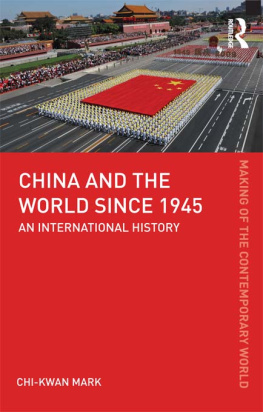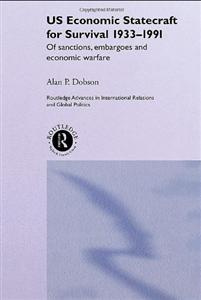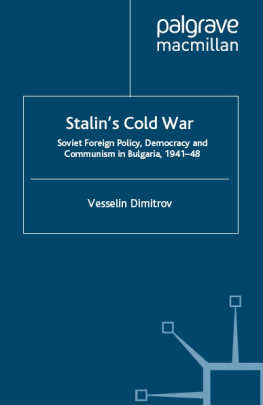Economic Statecraft during the Cold War
After the Second World War, many in the leadership of the United States thought that a war between the USSR and the free world was likely. After 1949, it was expected that communist China might be involved as well. In anticipation the US government arranged to stop nearly all exports to the Soviet bloc, and after 1949 to the entire Sino-Soviet bloc, in the belief that it would hinder the expansion of Soviet and Chinese military potential. To continue to receive the US Marshall Aid, European countries therefore had to impose similar bans. Because trade links between Western Europe and the former Russia and its satellite countries had existed for centuries, most West European countries were reliant on exports from the Soviet bloc and some of them soon refused to continue with the trade war. The US thereafter negotiated with the Europeans about what to include or exclude from the list of authorised goods with the Europeans seeking shorter and the US longer lists.
Using new archive materials to examine an aspect of the Cold War rarely discussed elsewhere, this volume follows the details of these trade negotiations and analyses the conflicts arising between the Europeans and the US administrations over the US restrictions of their commercial operations.
This book will be of great interest to all students of the Cold War, diplomacy and international history in general.
Frank Cain teaches Australian history at the University of New South Wales in Canberra, Australia. His research focuses on Cold War history, Australian political history and Intelligence history.
Cass series: Cold War history
Series editors: Odd Arne Westad and Michael Cox
ISSN: 1471-3829
In the new history of the Cold War that has been forming since 1989, many of the established truths about the international conflict that shaped the latter half of the twentieth century have come up for revision. The present series is an attempt to make available interpretations and materials that will help further the development of this new history, and it will concentrate in particular on publishing expositions of key historical issues and critical surveys of newly available sources.
Reviewing the Cold War
Approaches, interpretations, and theory
Edited by Odd Arne Westad
Rethinking Theory and History in the Cold War
Richard Saull
British and American Antieommunism before the Cold War
Marrku Ruotsila
Europe, Cold War and Co-existence, 19531965
Edited by Wilfred Loth
The Last Decade of the Cold War
From conflict escalation to conflict transformation
Edited by Olav Njlstad
Reinterpreting the End of the Cold War
Issues, interpretations, periodizations
Edited by Silvio Pons and Federico Romero
Across the Blocs
Cold War cultural and social history
Edited by Rana Miner and Patrick Major
US Paramilitary Assistance to South Vietnam
Insurgency, subversion and public order
William Rosenau
The European Community and the Crises of the 1960s
Negotiating the Gaullist challenge
N. Piers Ludlow
Soviet-Vietnam Relations and the Role of China 194964
Changing alliances
Mari Olsen
The Third Indochina War
Conflict between China, Vietnam and Cambodia, 197279
Edited by Odd Arne Westad and Sophie Quinn-Judge
Greece and the Cold War
Frontline state, 19521967
Evanthis Hatzivassiliou
Economic Statecraft during the Cold War
European responses to the US trade embargo
Frank Cain
Economic Statecraft
during the Cold War
European responses to the US trade
embargo
Frank Cain
First published 2007
by Routledge
2 Park Square, Milton Park. Abingdon, Oxon OX14 4RN
Simultaneously published in the USA and Canada
by Routledge
270 Madison Ave. New York. NY 10016
Routledge is an imprint of the Taylor & Francis Group, an informa business
2007 Frank Cain
Typeset in Times by Wearset Ltd. Boldon, Tyne and Wear
Printed and bound in Great Britain by MPC Books Ltd. Bodmin
All rights reserved. No part of this book may be reprinted or reproduced or utilised in any form or by any electronic, mechanical, or other means, now known or hereafter invented, including photocopying and recording, or in any information storage or retrieval system, without permission in writing from the publishers.
British Library Cataloguing in Publication Data
A catalogue record for this book is available from the British Library
Library of Congress Cataloging in Publication Data
A catalog record for this book has been requested
ISBN 10: 0-415-37002-7 (hbk)
ISBN10: 0-203-02970-4 (ebk)
ISBN 13: 978-0-415-37002-8 (hbk)
ISBN13: 978-0-203-02970-1 (ebk)
Contents
Preface
The West European countries have lived alongside the Russians and traded with them for centuries with relative amity whether they were under an imperial or communist government. The Americans were highly suspicious of the Bolshevik government from 1917, and their joining with the Soviets in a wartime alliance was done more in the belief that they were the lesser evil. The war transformed US politics and its perception of itself as it pondered what to do with the vast war machine it had created. The prewar animosity towards the Russians revived, and the idea of conducting a trade war against the Soviet bloc and later against the Chinese seemed an obvious course to take while the new Cold War military machine was constructed out of its wartime predecessor. The Europeans accepted trade embargoes and the overseeing body, CoCom, as a condition for receiving the American's Marshall Plan funding, but in the succeeding years they rejected many of the US strictures on trading with the Sino-Soviet bloc. Trading with the Russians was a century-old practice and could not be abandoned for US strategic interests. And not to trade with the rapidly emerging Chinese economy for the offence it would give the Americans was also perceived by the Europeans to be highly impractical. This book analyses the details of the struggle between the European states in their demands with the US administrations to be allowed to trade with the communists. In addition, it analyses the friction between the Kennedy, Johnson and Nixon administrations as they tried to persuade Congress and other elites of the necessity for the US itself to trade with the communist states as an essential part of global economic growth. Persuading their own departments such as the Defense Department, Congress and many of the voters of this more enlightened alternative to conducting a trade war was neither simple nor straightforward for those US presidents, as is shown in this book.
Acknowledgements
The writing of this book owes much to the availability of the vast archive holdings of the National Archives and Records Agency of the United States at College Park and to members of its energetic staff who welcome local and international visitors to its remote location, made more accessible by the Agency's bumpy but friendly shuttle bus ride. The resources of the National Archives at Kew, London, made available through their helpful staff and efficient database, must also be recognised for the contribution to the writing of this book. Also acknowledged is the financial support for making the visits to these archives over many years through the research funds of the History School in the University of New South Wales at ADFA, Canberra, whose Academic Support Group and Susan Cowan's contribution is also recognised in the book's completion. The understanding tolerance of my wife, Elaine, while researching abroad or shut in my study while writing, is gratefully acknowledged.


